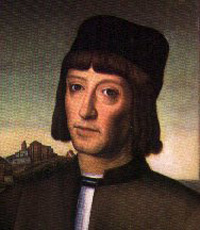Illumination
I do not remember the old couple—Bugs and Boots—who lived next door to us when I was four or five but I have the stories that I dictated to them. My mother says they delighted in my after-school visits, wherein we would sit on the front porch of their tiny house and I would weave words into fantastic tales about unicorns, witches, flying, magic. Story was everywhere for me then, in the crape myrtle buds I pinched into bloom before their time because I was sure Thumbalina lived inside. Magic was in inventions made: a magnifying glass made from a coathanger and series of swinging magnification lenses found as the "prize" in a series of McDonald's happy meals. I remember thinking that it was just marvelous that make believe could manifest into the world, that words could compel people to do things, or feel a certain way. Bugs and Boots saw a spark and wanted to be a part of its cultivation and until I could write as fast as they could, they would be my scribes because to let go the stories was to withhold joy, and to not tell them, an impossibility. Columbus and Pinzon meet the native, civilize the native and her myths through the technology of writing.
Later, when I was eight or nine, I entered a Mother’s Day letter-writing contest at my school, and I won. The prize was publication of the letter in the local newspaper. I worked on this letter for weeks, crafting, retooling, starting over, throwing away, uncrumpling discarded pages, rescuing individual words and transcribing them with great delicacy like one of Darwin’s darling beetles.
When I first saw my name in print, I was overcome. There I was. A real girl. Ink made me so. It had also made my words so. Staring at the printed letter, I felt the weight of words, the heaviness of over-sentimentality. How words could gush and ooze, how language could muddle the point. An overwrought sentence could be as dangerous as smallpox to one’s intention to tell the truth.
Later, after reading and writing scripts, dabbling in song and poetry, after I found Carver and Krakauer and Dickens, after fiction gave way to nonfiction, I found myself at an interview for a Rotary scholarship. If I won the scholarship, I could study Writing in England for a whole year. Sitting at the head of the interview table, facing one dozen tight-jawed, button-down administrator-types, I shook for fear that language would mutiny.
"Final question", the committee chair said,"Why writing?" He paused. “You are competing with chemists and mathematicians and social activists. As a Rotary Scholar, we’re investing in someone who we believe can change the world. We expect you, quite literally, if you’re chosen, to make the world a better place in which to live. How will you do this through writing?”
I do not remember exactly what I said, but I remember feeling convicted. Whatever I said, I must have said it with sincerity because I won that scholarship. I did not know that I was practicing the ancient craft of rhetoric, or that I would become a rhetorician. I only knew that there was nothing behind language and that words could move and construct the world, sometimes a better world. And that if I had a choice, that's what I'd do.
